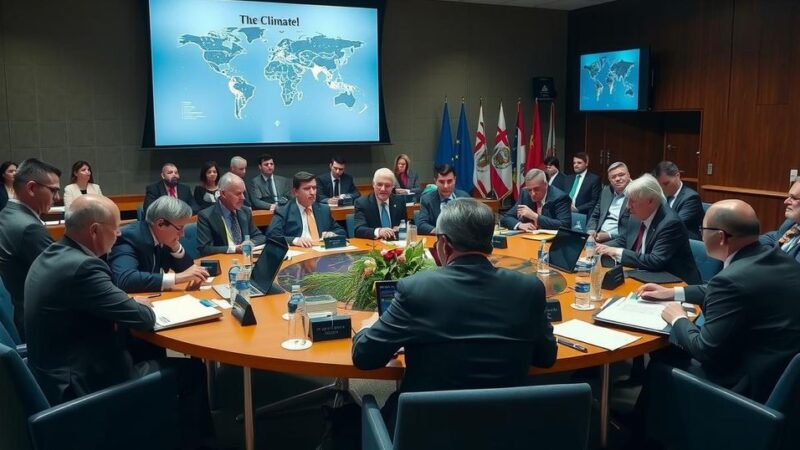Recent studies reveal a growing climate change anxiety among young Americans, with 85% reporting adverse mental health effects linked to climate crises. This anxiety affects their daily lives, influencing decisions about childbearing and residency. Experts advocate for political action to mitigate feelings of despair and highlight the potential for meaningful change, stressing the importance of collective efforts and individual engagement in climate justice initiatives.
In an age characterized by increasing climate change anxiety, young individuals like Julie France, a 34-year-old Millennial residing in Denver, Colorado, exemplify the profound impact of environmental concerns on daily decision-making. France, who has been aware of climate change from an early age, actively makes lifestyle choices that reflect her environmental consciousness. This personal narrative resonates with many Millennials and upcoming generations, who are grappling with the realities of a changing climate and the resultant existential despair. A recent survey published in Lancet Planetary Health reveals that an alarming 85% of young Americans aged 16 to 25 report experiencing negative mental health effects due to human-caused climate change. The data indicates widespread concern across political affiliations, with 96% of young Democrats and 74% of Republicans acknowledging the emotional toll of climate crises. The research highlights a troubling state of mind among youth, as over 60% express feelings of anxiety and powerlessness regarding climate change. Moreover, more than half of those surveyed stated that their decisions about parenthood and living situations have been influenced by the climate crisis. Dr. Eric Lewandowski, the lead researcher from Columbia University, emphasizes that these feelings of distress are common and not isolated. He notes that those experiencing anxiety about climate change are part of a larger collective that seeks significant environmental action from both governmental and business sectors. Importantly, he suggests that there remains an opportunity for substantial change, as the current climate crisis has not yet reached an irreversible state. Climate scientist Dr. Michael E. Mann underscores that it is feasible to limit global warming to 1.5°C or 2°C above pre-industrial levels, a critical threshold. He identifies the main barriers to this goal as political rather than technological, arguing for a redirection of public sentiment towards constructive political action. While Mann acknowledges the complex political landscape, he maintains hope that upcoming elections will prioritize science-based policies. Furthermore, NASA climate scientist Dr. Peter Kalmus points out that societal dependence on fossil fuel profits and misinformation compromises progress towards sustainable solutions. To mitigate despair, Lewandowski encourages youth to engage actively in climate advocacy, fostering collective action and addressing climate denialism. The necessity of directing anger and frustration towards the true culprits of climate inaction—namely fossil fuel executives—rather than fellow citizens is emphasized by Mann. Both Mann and Kalmus agree that accessible renewable energy alternatives exist, contingent upon shifting power dynamics within the current socio-economic framework.
The article addresses a growing concern among younger generations regarding climate change and its detrimental impacts on mental health and future planning. It draws attention to a significant study that reveals overwhelming unease among youth, linking it to a desire for more aggressive environmental action from leaders. The interplay between personal experiences of climate anxiety and broader societal trends is explored, illustrating the urgency for a collective response to mitigate future crises. The subject matter is imperative, as it not only captures the emotional landscape of youth today, but also underscores the need for action against climate change’s political obstacles.
The analysis presented illustrates a profound relationship between climate change awareness and psychological well-being among the youth. As they grapple with feelings of anxiety and helplessness, there remains a collective urge for action that can lead to meaningful change. Experts underline the importance of political engagement and community involvement in reversing the trend of despair. Ultimately, the article advocates for hope through proactive measures and the redirection of anger towards effective climate action rather than against fellow citizens. In addressing the challenges posed by climate change, society must prioritize innovations in renewable energy and political accountability to safeguard a sustainable future for generations to come.
Original Source: www.salon.com






